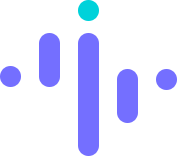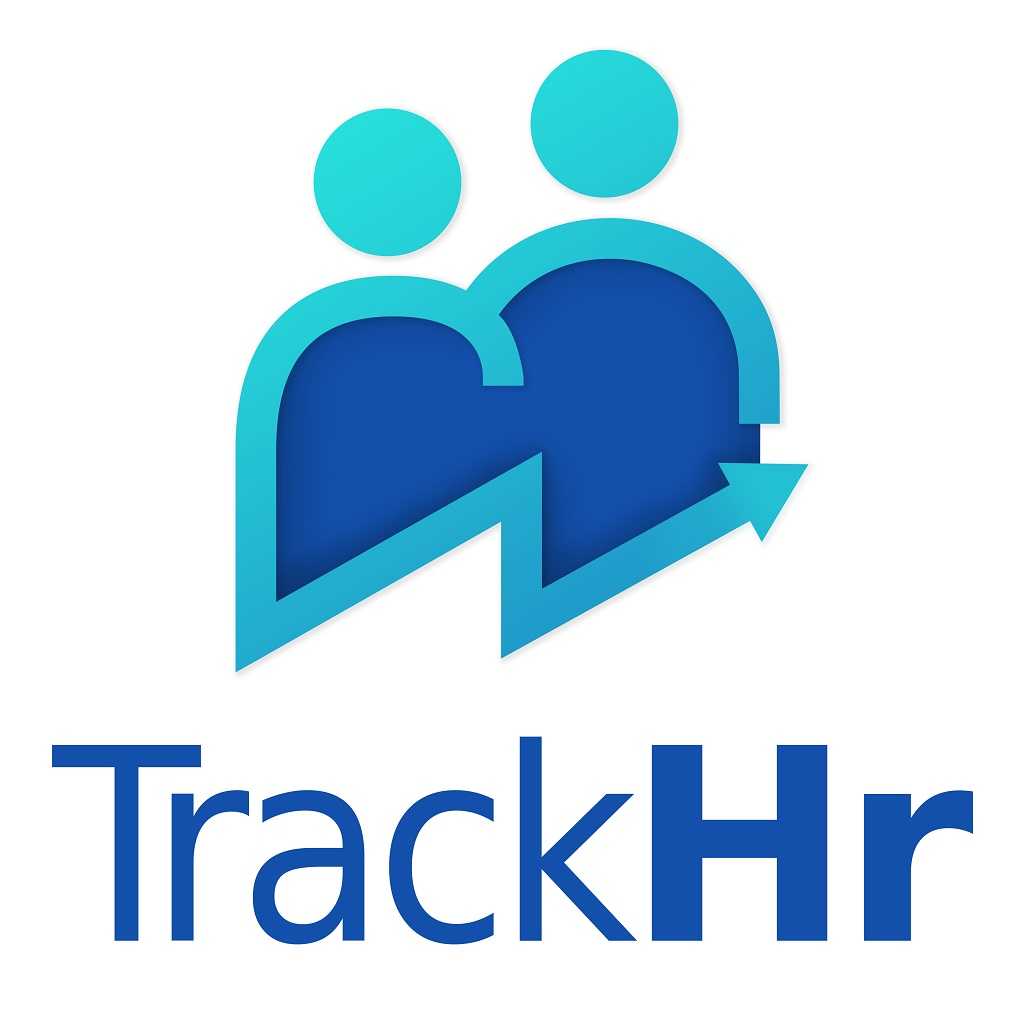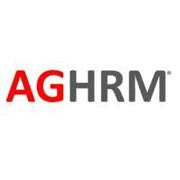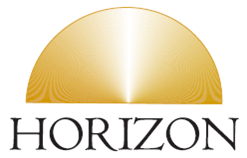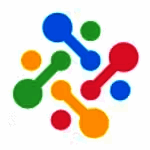Performance management software is accessible across numerous devices and platforms, making it easy for employees and supervisors to use. This encompasses desktop computers, laptops, tablets, and smartphones, as well as various operating systems like Windows, macOS, iOS, and Android. This flexibility enables individuals to access the software from any location and at any time, ensuring that performance assessments and feedback are provided on time.
List of 20 Best Performance Management Software
isolved, the top HCM technology provider delivering a unique blend of software and services to address the unique needs of HR, payroll, and benefits professionals. Our reliable platform empowers these essential team members, also known as People Hero...Read More isolved
HR Performance Pro - the leading HR software and consulting service created by HR Performance Solutions. Our platform, developed by seasoned HR experts, provides unparalleled security, powerful features, flexibility, and user-friendliness. Boost prod...Read More HR Performance Pro
WebMentor LMS is a learning management system designed to enhance your training processes, enhance employee skills, and boost your organizations overall productivity. Its advanced course management, insightful analytics, and personalized interfaces t...Read More WebMentor LMS
PulseHRM is a HRMS and employee onboarding solution designed for organizations of all sizes. Powered by Oracle technology, this cloud-based software offers a modular structure that allows you to tailor your experience by starting with essential modul...Read More PulseHRM
Prevedere is a cloud-based performance management software that harnesses the power of internal and external data to uncover opportunities for business enhancement. By utilizing predictive leading indicators, Prevedere empowers organizations to make...Read More Prevedere
UltiPro by Ultimate is a cloud-based HR solution designed to simplify and optimize your HR processes. With its powerful payroll engine, you can effectively manage employee information, benefits, and performance evaluations all in one convenient platf...Read More UltiPro
Insightful: the top-notch workforce analytics and productivity software used by over 3,000 reputable brands around the globe. Our dependable data-focused solutions and offerings enable you to improve employee efficiency and output, whether they are r...Read More Insightful
Effy AI is a digital solution that revolutionizes businesses productivity and streamlines their operations. This advanced AI platform simplifies routine tasks and offers in-depth data analysis, empowering enterprises to optimize their workflow. Effy...Read More Effy AI
Heartpace is aplatform that promotes collaborative and goal-oriented environments to drive companies towards success. Our software harnesses the power of OKRs and continuous performance management, empowering teams to unlock their full potential. Fos...Read More Heartpace
TrackHr is a software for efficient business management. Stay organized and boost productivity as your business grows and teams expand. With TrackHr, wastefulness and inefficiencies are a thing of the past. Streamline tasks and manage your time effec...Read More TrackHr
AGHRMS, a leading cloud-based payroll and HR software developed in Singapore. Trusted by over 880 companies in 12 countries, our platform offers a complete solution for effortless HR management. With features such as automated payroll, attendance tra...Read More AGHRMS
Horizon HR, a leading Cloud-based HR and payroll solution that puts customer satisfaction first. Our platform offers exceptional features like simplified staff data management, secure financial transactions, and comprehensive payroll reports. With re...Read More Horizon HR
Cerrebro CRM is a cloud-based solution for managing field teams and connecting with customers and back-office staff effortlessly. With a convenient dashboard accessible from any device, you can increase productivity and streamline processes in any in...Read More Cerrebro CRM
Warm Commerce - the unbeatable B2B supplier platform known for its unmatched network effects. Our top-notch supply chain management and sourcing solutions are geared towards cultivating a robust, varied, and economical supply chain. Discover the adva...Read More Warm Commerce
Zabbix is a open-source monitoring software that offers efficient performance management solutions. It is trusted by numerous organizations for its robust scalability, high-performance capabilities, user-friendly interface, and cost-effective pricing...Read More Zabbix
HRMTHREAD, the premier web-based payroll software highly favored by over 5000 satisfied clients. With its advanced features, managing employee database and payroll has never been easier. Its user-friendly interface allows for smooth navigation and si...Read More HRMTHREAD
eSparsh HRMS is an innovative human resource management software offered by Sparsh Technologies Pvt Ltd, based in Bengaluru, India. Since 2000, we have been providing cutting-edge solutions to streamline and enhance HR processes. Boost your organizat...Read More eSparsh HRMS
Mesh.ai is an innovative software that revolutionizes talent management and organizational development through the use of AI technology. Our cutting-edge platform offers advanced features, including skill assessment, career planning, and workforce op...Read More mesh.ai
Bullseye Engagement is a top-performing performance management software specially designed for staffing agencies, hiring firms, and advertising organizations. It features a user-friendly interface, 24/7 client support, comprehensive modules, and trai...Read More Bullseye
15Five - the Employee Engagement platform trusted by over 1100 renowned organizations. Our innovative platform enables businesses to effortlessly manage employee performance, feedback, and engagement, leading to enhanced business outcomes and heighte...Read More 15Five
Learn More About Performance Management Software
- What Is Performance Management Software?
- What Are The Recent Trends In Performance Management Software?
- Benefits Of Using Performance Management Software
- Important Factors To Consider While Purchasing Performance Management Software?
- What Are The Key Features To Look For In Performance Management Software?
- Why Do Businesses Need Performance Management Software?
- How Much Time Is Required To Implement Performance Management Software?
- What Is The Level Of Customization Available In Performance Management Software?
- Which Industries Can Benefit The Most From Performance Management Software?
- Conclusion
What Is Performance Management Software?
Performance management software is a strong tool that enables firms to effectively evaluate, track, and improve employee performance. It offers a unified platform for managers and HR experts to create goals, track progress, and provide feedback, fostering a culture of continual growth and development inside a firm.
At its core, performance management software is designed to make the performance review process easier by automating functions like generating performance plans, gathering feedback, and analyzing performance data. This saves time and resources, allowing managers to focus on delivering valuable feedback and coaching to their team members.
Furthermore, performance management software provides a comprehensive view of an employee's performance, including their strengths, areas for improvement, and contributions to company goals. This allows managers to make better decisions about their employees' promotions, training opportunities, and career growth options.
Furthermore, performance management software frequently includes features like real-time data tracking, goal alignment, and recognition programs to encourage employee transparency and incentive. It also simplifies the identification of high-performing individuals and teams, assisting businesses in retaining top personnel and cultivating a high-performance culture.
Overall, investing in performance management software may improve a company's efficiency, engagement, and production, making it a significant tool for firms of all sizes and industries. With so many options on the market, purchasers must carefully analyze their individual objectives and goals before selecting the ideal solution for their firm.
What Are The Recent Trends In Performance Management Software?
Performance management software has become an essential tool for firms of all sizes in efficiently managing and improving employee performance. With the growing demand for remote work and flexible work arrangements, performance management software has evolved to match the workforce's evolving requirements.
We'll go over the latest trends in performance management software to help you make an informed decision when selecting a solution for your firm.
1. Focus On Continuous Feedback And Coaching: The days of annual performance reviews are over, as the focus has switched to continual feedback and coaching. Performance management software now enables managers to deliver regular feedback to their employees, encouraging a culture of continuous improvement. Real-time feedback, whether in the form of praise, constructive criticism, or goal setting, dramatically boosts employee engagement and performance.
2. Employee-Centred Approach: Traditionally, performance management was a top-down process in which managers established goals and evaluated employee performance. However, in recent years, there has been a shift toward an employee-centric approach, in which employees actively participate in the performance management process. Modern performance management software gives employees the tools and resources they need to set goals, track their progress, and exhibit their accomplishments, resulting in increased motivation and pleasure at work.
3. Integration Of Learning And Development: Organizations are increasingly investing in their employees' professional growth, and performance management software has evolved to accommodate this trend. Many systems now integrate with learning and development platforms, allowing employees to receive individualized training recommendations based on their performance and career aspirations. This integration contributes to a more cohesive employee development process, resulting in a more engaged and skilled staff.
4. Data-Driven nsights: Performance management software now includes powerful analytics and reporting capabilities, giving managers significant data-driven insights. These insights help firms discover high-performing people, track important performance metrics, and make informed decisions to improve overall performance. Managers can use data to identify and address performance gaps, as well as make strategic decisions to maximize their workforce's productivity.
5. Mobile Accessibility: With the rise of remote work, performance management software has evolved to include mobile accessibility. Mobile apps now enable employees and supervisors to access performance data, provide feedback, and track progress while on the go. This feature ensures that performance management is seamless regardless of an employee's location, resulting in a more flexible and agile team.
Benefits Of Using Performance Management Software
Performance management software is a complete solution that enables firms to manage and enhance their employees' productivity, efficiency, and overall performance. In today's fast-paced corporate world, when competition is tough and every second matters, businesses want effective performance management tools to ensure that their workforce is maximizing its potential.
Here are the advantages of utilizing performance management software that make it an indispensable investment for any organization:
1. Streamlines Performance Evaluations: Traditional performance evaluation methods, such as manual reviews or paper-based systems, are time-consuming and error-prone. Performance management software streamlines the entire process, making it more effective, accurate, and time-saving.
2. Real-Time feedback: Performance management software allows employees to receive timely and meaningful feedback on their performance rather than having to wait for annual reviews. This enables them to make essential modifications and adjustments quickly, leading to enhanced productivity and engagement.
3. Goal Setting And Tracking: This software makes it easier to provide SMART goals to employees and track their progress toward attaining them. It also helps to integrate employee goals with the organization's overarching objectives, ensuring that everyone is working toward the same goal.
4. Identifies Top Performers: Performance management software includes detailed statistics and reports on employee performance, making it easier to identify top performers and provide appropriate recognition and awards.
5. Employee Development And Growth: The software provides development tools such as training courses and coaching sessions to assist employees in improving their abilities and moving forward in their careers. This ultimately results in a more engaged and motivated workforce.
6. Transparency And Fairness: Using performance management software allows firms to ensure a fair and transparent performance review process. The software eliminates potential prejudice, guaranteeing that all employees are judged based on their actual performance rather than personal preferences.
7. Data-Driven Decision Making: Performance management software gives managers real-time information about employee performance and advancement, allowing them to make better judgments about promotions, succession planning, and other organizational strategies.
8. Expenditure-Effective: While investing in performance management software may appear to be an additional expenditure, it can ultimately save firms money. Organizations can lower turnover rates by boosting employee engagement and productivity, thereby saving money on hiring and training new staff.
Important Factors To Consider While Purchasing Performance Management Software?
When choosing performance management software, it is critical to carefully analyze a variety of variables to ensure that the product matches the unique demands of your firm.
This buyer's guide will go over the most crucial aspects to consider while making your decision.
1. Features And Functionality: The first and most important considerations when selecting performance management software are its features and functionality. Look for a platform that allows you to track performance, set goals, manage teams, and provide feedback and evaluations. It should also offer configurable dashboards and reports to meet your organization's requirements.
2. Scalability: As your organization expands, so will your performance management requirements. As a result, it is critical to select a solution that will scale with your firm. Consider how many staff the program can serve and whether it can add new features, users, and integrations in the future.
3. User Friendly: The program you select should be easy to use and have an intuitive interface. It should be simple to navigate and require little training for your personnel to begin utilizing it effectively. Consider demoing the app or reading user reviews to assess its usability.
4. Customization Options: Because each firm has distinct demands and processes, it is critical to select performance management software that can be tailored to your individual requirements. Look for features that let you customize forms, ratings, and workflows.
5. Integration Capabilities: Performance management is only one facet of an organization's operations; flawless integration between technologies is critical. Choose software that is compatible with other HR solutions such as payroll, recruitment, and employee engagement platforms.
6. Mobile Compatibility: In today's workplace, employees are not constantly in the office, thus it is critical to have access to performance management on the move. Consider software with a mobile app or responsive web design so that employees may access it at any time and from any location.
7. Data Security: Since performance management involves sensitive employee information, data security is a top responsibility. Choose software that includes strong data security features such as encryption, user access control, and regular backups.
8. Customer Support: Technical difficulties and training requirements are unavoidable when implementing new software. Consider the software company's customer support, which includes training, troubleshooting, and ongoing support.
9. Pricing: Performance management software can range from free to expensive solutions. Determine the budget you are ready to spend on the tool and compare the prices of your preferred possibilities. Take into account any additional expenditures, such as implementation, training, and support.
10. User Reviews And Suggestions: Finally, conduct your own research by reading user reviews and suggestions from firms that have utilized the product. This can provide you with vital information about the software's strengths and drawbacks from the user's perspective.
When choosing performance management software, consider these essential elements to make an informed purchase that will efficiently fulfill your organization's needs while also driving employee performance and growth.
What Are The Key Features To Look For In Performance Management Software?
Performance management software is a strong tool that enables businesses to measure, track, and improve their employees' performance. However, with so many options on the market, it might be difficult to select the best one for your organization.
To simplify your purchasing decision, below are the essential elements to look for in performance management software:
1. Goal Management: With this tool, managers and employees can define and track individual and team goals together. A effective performance management software should include a flexible goal-setting and monitoring system that is consistent with the organization's overall goals.
2. Performance Tracking And Evaluation: The software should provide a thorough mechanism for monitoring and assessing employee performance. This comprises performance appraisal forms, feedback channels, and real-time performance tracking to assist managers in identifying areas for improvement and recognizing top workers.
3. Competency Evaluation And Development: Look for a tool that assesses an employee's abilities and competencies and generates focused growth plans. This tool can help uncover skill gaps and growth opportunities, allowing people to perform better and improve in their professions.
4. Regular Performance: Reviews and feedback are an important aspect of performance management. The software should include an easy-to-use interface that allows managers to conduct performance reviews and provide feedback to their team members.
5. Learning And Development Resources: The software should have access to online courses, webinars, and training materials. This feature enables employees to continuously develop and improve their skills and knowledge in order to achieve performance objectives.
6. Reporting And Analytics: Good performance management software should provide reporting and analytics features to assist managers and HR professionals in understanding employee performance trends. This can help to make data-driven decisions and develop successful performance improvement initiatives.
7. Integration With Other HR Systems: Select software that works easily with other HR systems, such as payroll and HRIS. This can help to simplify data administration and provide consistency in performance data across all systems.
Why Do Businesses Need Performance Management Software?
Performance management software is an essential resource for businesses of all sizes and sectors. It enables firms to efficiently measure, assess, and improve employee performance, resulting in higher productivity, employee happiness, and overall success.
Here are some major reasons why firms want performance management software:
1. Streamlined Performance Appraisals: Performance management software automates the entire performance appraisal process, making it faster, more efficient, and less error-prone. It reduces the need for manual paperwork, resulting in a more structured and transparent method to reviewing employee performance.
2. Real-Time Performance Monitoring: Performance management software allows firms to monitor their employees' progress in real time. This allows managers to quickly identify any performance concerns or opportunities for improvement and take the appropriate steps to rectify them. It also provides for frequent check-ins, allowing staff to make required adjustments to fulfill their objectives.
3. Goal Setting And Tracking: Establishing and tracking goals is critical to both employee and organizational success. Performance management software allows firms to define specific, quantifiable, realistic, and time-bound goals for each employee and measure their progress toward them. This helps to align individual and organizational goals, ensuring that each employee's efforts contribute to the company's overall success.
4. Feedback And Coaching: Performance management software enables managers to provide regular and timely feedback to employees. This allows employees to understand where they stand and how to improve their performance prior to the end-of-year performance evaluation. It also gives managers a platform to coach and advise their staff, which leads to their professional development.
5. Data-Driven Decision Making: Performance management software provides useful insights and data for making educated decisions about employee performance and growth. It enables firms to identify high-performing individuals, assess training requirements, and make required changes to improve overall performance.
How Much Time Is Required To Implement Performance Management Software?
Implementing performance management software involves meticulous planning and implementation. The time required for implementation might vary based on the complexity of the program, the size of the organization, and the company's preparedness to accept the new system. On average, it takes 3 to 6 months to completely integrate performance management software.
The first step in installing performance management software is to define the organization's objectives and goals. This will help determine the software's major features and functionalities. It is critical to include key stakeholders and department heads in this process to guarantee alignment with the company's vision and strategy. Next, pick and purchase the software.
This can take from one to two months, depending on the appraisal process and vendor negotiations. Once the program has been obtained, the implementation phase begins. This includes tailoring the software to the organization's specific requirements, importing data from current systems, and teaching workers on how to use it efficiently. Depending on the number of users and the system's complexity, this process can take 2 to 3 months.
After the software is configured and ready for use, a trial period is recommended to confirm that everything is working properly. This can extend from two weeks to a month. Once the trial time is up, the software is fully released and ready to use. However, it is critical to regularly monitor and adjust the software to ensure it meets the organization's expectations and objectives.
Overall, the average time to adopt performance management software is 3 to 6 months. To ensure a successful implementation process, firms must properly plan and manage resources. Furthermore, investing in sufficient employee training and support can assist expedite the process and ensure the software is used successfully to drive performance and accomplish corporate objectives.
What Is The Level Of Customization Available In Performance Management Software?
Performance management software provides a wide range of features and capabilities, including goal creation and progress tracking, as well as performance evaluations and feedback. The extent of modification, however, can have a major impact on the software's effectiveness. So, what level of customisation is accessible in performance management software? The level of customisation in performance management software varies substantially based on the vendor and the individual features available.
Overall, most performance management systems provide a high level of customisation, allowing firms to adjust the software to their own goals and operations. Goal setting is one of the most common modification options in performance management software. Because each organization's priorities and objectives differ, the software typically allows for the creation of bespoke goals that are consistent with the company's aims and values.
This level of customisation guarantees that staff are working toward goals that are both attainable and relevant to the organization's overall performance. Another important component of customization in performance management software is the ability to build personalized performance evaluation forms. This tool allows businesses to create assessments that appropriately reflect their performance criteria and values, rather than utilizing generic templates.
This level of customization guarantees that the evaluation process is matched to the organization's specific requirements, resulting in more accurate and meaningful feedback for employees. In addition to goal setting and evaluation forms, performance management software usually allows organizations to define performance indicators and reporting. This level of flexibility allows businesses to analyze and measure performance using specific data and metrics that are relevant to their operations.
It also enables more detailed analysis and reporting, giving employers important insights into their employees' performance. Overall, performance management software provides a high level of customization, allowing firms to adjust it to their specific requirements and operations. This amount of customization guarantees that the software successfully supports and improves the performance management process, resulting in higher employee performance and overall business success.
Which Industries Can Benefit The Most From Performance Management Software?
Performance management software can benefit a variety of businesses. Its complete features and benefits are intended to improve the performance and productivity of enterprises and organizations.
We'll look at which industries can benefit most from performance management software.
1. Corporate Sector: Performance management software may help major organizations, small firms, and startups. It enables HR departments to monitor and analyze employee performance, establish goals and targets, and provide real-time feedback. This leads to greater employee engagement, productivity, and overall organizational effectiveness.
2. Healthcare: Performance management software can be used to track and analyze the performance of doctors, nurses, and other medical personnel. It can also assist identify areas for improvement and provide ongoing training and development opportunities. This improves patient care and overall efficiency in healthcare facilities.
3. Education: With a growing emphasis on data-driven decision making in education, performance management software can be an effective tool for tracking and assessing student and instructor performance. It can help to discover areas for development, implement tailored learning programs, and improve the entire teaching and learning experience.
4. Retail: Retail organizations can use performance management software to define goals and targets for their staff, track sales performance, and provide real-time feedback. This improves sales performance, customer satisfaction, and overall retail efficiency.
5. Hospitality: Hoteliers, restaurateurs, and other hospitality organizations might benefit from performance management software. It enables them to monitor employee performance, assure consistency in service quality, and provide prompt feedback for improvement. This leads to improved guest experiences and higher customer satisfaction.
Conclusion
To summarize, it is clear that choosing the correct performance management software is critical for any organization seeking to improve employee performance, productivity, and overall corporate success. Before making a purchase decision, you should first understand your organization's specific objectives and goals. When comparing performance management software, consider features, simplicity of use, integrations, support, and price.
It is also critical to include important stakeholders, such as HR professionals and managers, in the decision-making process to ensure that the software satisfies their requirements. Remember to select software that allows for customization as well as excellent data tracking and analysis. Furthermore, the software should be consistent with your company's aims and values to facilitate a smooth setup and adoption process.
By thoroughly researching and comparing top performance management software alternatives, you can make an informed decision that will benefit your firm for the long term. Keep in mind that continuing assistance and training are critical to the software's effective adoption and use.
Investing in the correct performance management software can be a great asset for any firm, resulting in increased employee engagement, retention, and, eventually, corporate success. We hope our buyer's guide has given you with important insights and direction in selecting the finest performance management software for your firm.
Performance Management Software FAQ's
Can Performance Management Software Be Accessed Across Multiple Devices And Platforms?
Is Performance Management Software Future-Proof And Adaptable To Emerging Technologies Like AI, Blockchain Or IoT?
Yes, most performance management software alternatives are intended to be future-proof and adaptable to new technologies such as AI, blockchain, and IoT. This is because these technologies are increasingly being incorporated into other business processes, such as performance management.
As a result, software suppliers are constantly updating and improving their solutions to embrace new technologies and remain competitive in a rapidly changing business market. Furthermore, many software vendors provide customizable choices to ensure that their product is easily adaptable to any new technologies that emerge in the future.
Is There A Free Trial Offered To Assess Performance Management Software Before Committing?
Yes, most performance management software suppliers provide a free trial period so that potential clients can evaluate the product before making a commitment. This enables firms to evaluate the software's features and functioning while also determining whether it fits their performance management requirements. It is recommended that you take advantage of the free trial to check that the program meets your organization's aims and objectives.
Does Performance Management Software Offer Data Security Features And Meet Regulatory Compliance Standards?
Performance management software often includes extensive data security measures and maintains regulatory compliance. These features include data encryption, access control, and automated backups. The program is intended to securely store sensitive employee data while adhering to high privacy regulations such as GDPR and HIPAA. This allows enterprises to use the software for performance management with confidence while maintaining data confidentiality.
Can Performance Management Software Integrate Seamlessly With Existing Tools And Platforms?
Yes, most performance management software is designed to work easily with other tools and platforms. Employees can now access the software within the systems they are already familiar with, making the process more streamlined and efficient. Furthermore, integrating with existing tools and platforms guarantees that all data and information are synchronized and up to date, giving a more accurate picture of performance. This also eliminates the need for manual data entry, which saves time and reduces the likelihood of errors.







